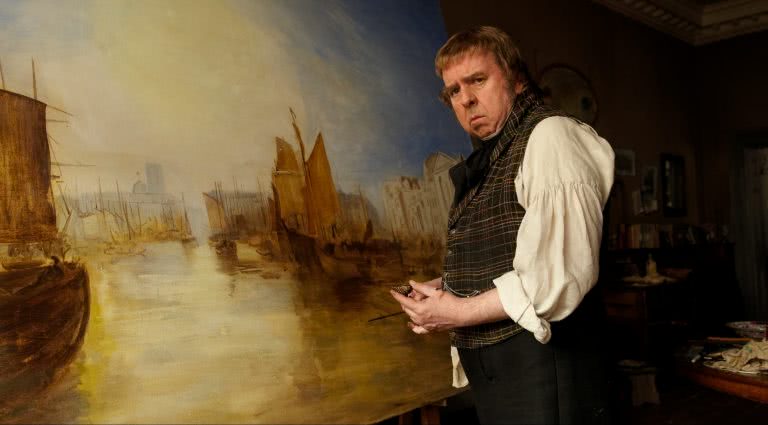J.M.W. Turner looms large in the canon of great English painters. The Tate’s esteemed Turner Prize, awarded annually, was named for him; he is credited with elevating the status of the landscape genre of painting at a time when narrative style compositions dominated; and he is commonly credited with paving the way for the French Impressionists with Claude Monet among those who studied his work.
Writer and director Mike Leigh (Secrets & Lies, Happy-Go-Lucky) recognised in Turner a “radical, revolutionary painter” and as such saw scope for making a film examining his extraordinary and often ethereal work, alongside their very mortal, imperfect and human creator.
Mr. Turner begins in 1826 with the 51-year-old artist’s notoriety steadily building. Turner (Timothy Spall) is working from his London studio where he lives with his elderly father/studio assistant (Paul Jesson) and housekeeper/occasional rubbing post (Dorothy Atkinson). Immediately the artist is portrayed as a flawed individual, particularly in an early scene where he denies responsibility for children that are clearly his. We watch as the artist travels, paints and whores his way around London until the death of his father. This turning point sees him fall into a depressive phase but also leads to his seemingly loving relationship with a widowed landlady (Marion Bailey).
While the plot is somewhat benign, its Leigh’s script that proves the hero here. Turner lived in a time when manners and tradition were paramount, something that so often dilutes the meaning of events for modern audiences. Nonetheless, Leigh manages to circumnavigate these societal conventions without losing valuable meaning. Similarly, Spall’s vast repertoire of grunts and surly looks gives a humanity to Turner that historical characters so often lack, a performance which was recognised in his Best Actor gong at this year’s Cannes Film Festival.
Nonetheless, at two-and-a-half hours and with limited real action, this film caters more for those already interested in Turner’s work and life, as it tends to labour as a standalone narrative.
3/5 stars


































